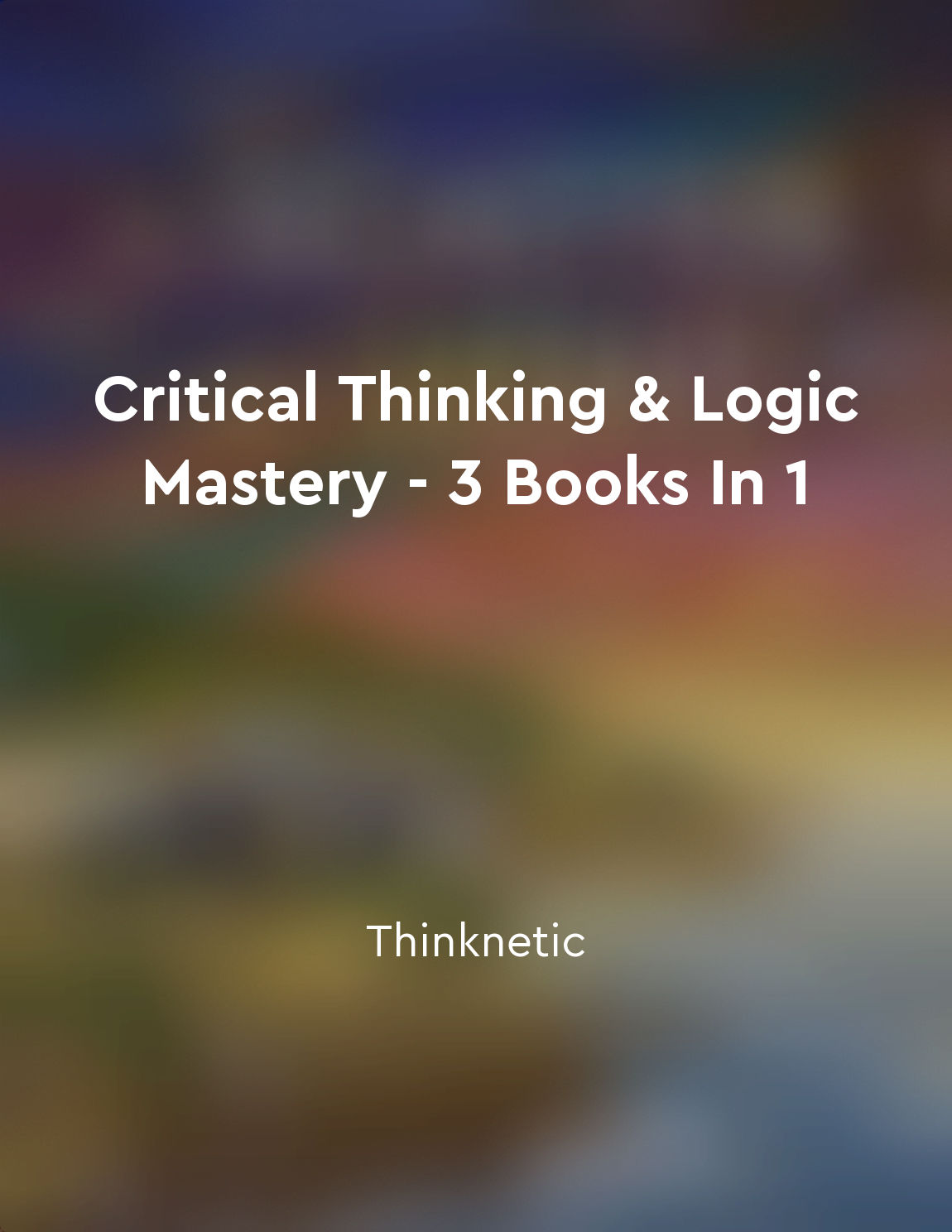Rationality involves updating beliefs in light of new information from "summary" of The Nature of Rationality by Robert Nozick
In rationality, our beliefs must be responsive to new information. When we receive new evidence or data, we must be willing to adjust our beliefs accordingly. This process of updating our beliefs is crucial for maintaining a rational stance. By incorporating new information into our belief system, we are able to refine our understanding of the world. This allows us to make more accurate predictions and decisions based on the most up-to-date knowledge available. Without updating our beliefs in light of new information, we risk holding onto outdated or inaccurate beliefs that may lead us astray. Updating beliefs in response to new information also demonstrates intellectual honesty. It shows a willingness to engage with reality as it presents itself, rather than clinging to preconceived notions or biases. Rational individuals are open-minded and adaptable, willing to revise their beliefs in the face of compelling evidence. Furthermore, updating beliefs in light of new information is a process of continuous learning and growth. It reflects a commitment to intellectual integrity and a desire for truth. By remaining receptive to new information and adjusting our beliefs accordingly, we demonstrate a commitment to rationality and a respect for the importance of evidence in forming our worldview.- The concept of updating beliefs in light of new information is central to the nature of rationality. It underscores the importance of remaining flexible and responsive to the ever-changing landscape of knowledge and evidence. By embracing this principle, we can strive towards a more accurate and coherent understanding of the world around us.
Similar Posts

Cognitive biases affect decisionmaking
Cognitive biases are systematic patterns of deviation from norm or rationality in judgment. These biases often lead people to m...

Understanding logical fallacies can prevent errors in reasoning
Understanding logical fallacies is crucial in developing strong critical thinking skills. By being able to identify and avoid l...

Stay true to your principles
Staying true to your principles means not compromising your beliefs or values, even when faced with challenges or temptations. ...

Choose your own values
The idea of determining one's own values is a profound one, for it challenges the traditional notions of morality and ethics th...
Theory of Causality
The theory of causality is one of the most fundamental concepts in philosophy, as it deals with the relationship between cause ...
Understand nonverbal cues
To truly understand nonverbal cues, we must pay close attention to the subtle messages that are being conveyed through body lan...
Reasoned debate fosters mutual understanding and cooperation
The importance of reasoned debate cannot be overstated. It is through the exchange of ideas, the challenging of assumptions, an...

Totality as the highest truth
The highest truth is found in the totality of all things, where the individual moments and contradictions are reconciled and in...

The universe is not designed for human life
The universe is not designed for human life. It is a vast and mostly empty expanse, with planets, stars, and galaxies scattered...
The burden of proof lies with those making extraordinary claims
When we encounter extraordinary claims, the burden of proof should not fall on skeptics to disprove them. Instead, those making...


